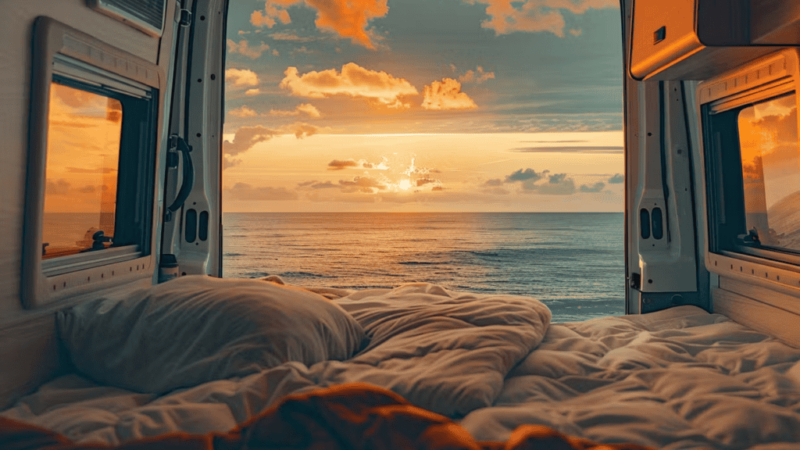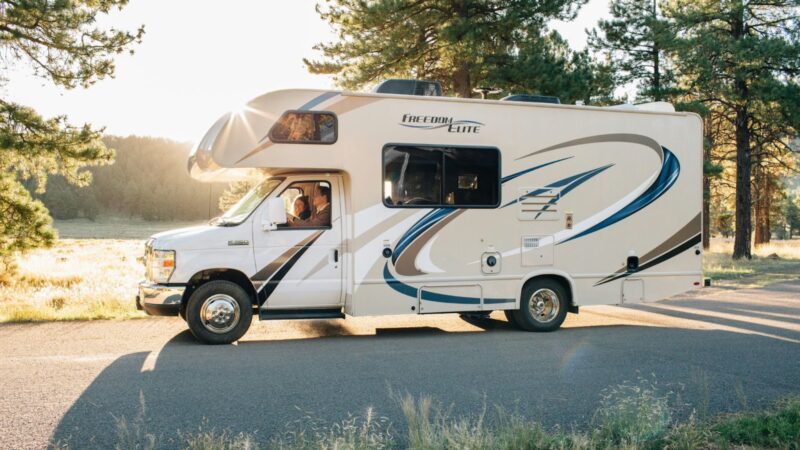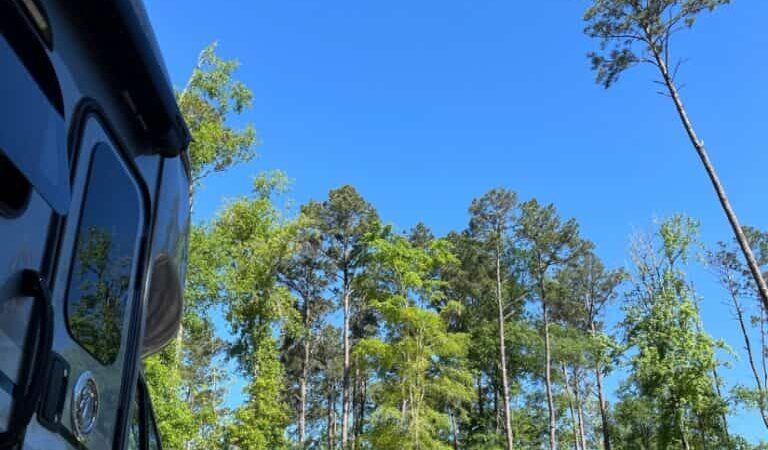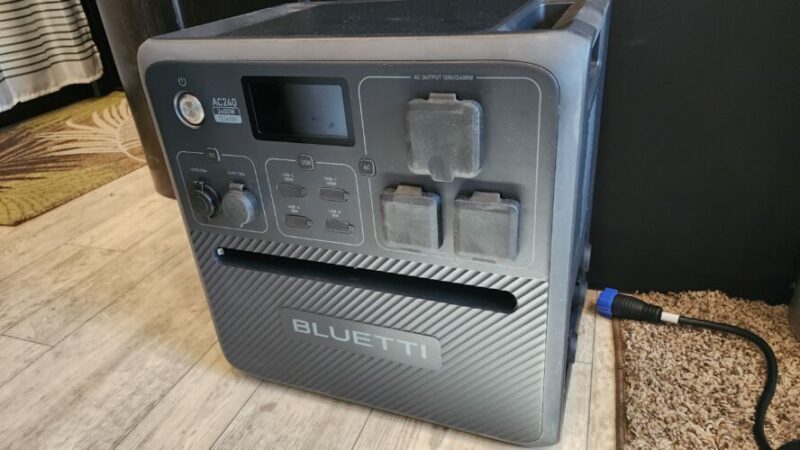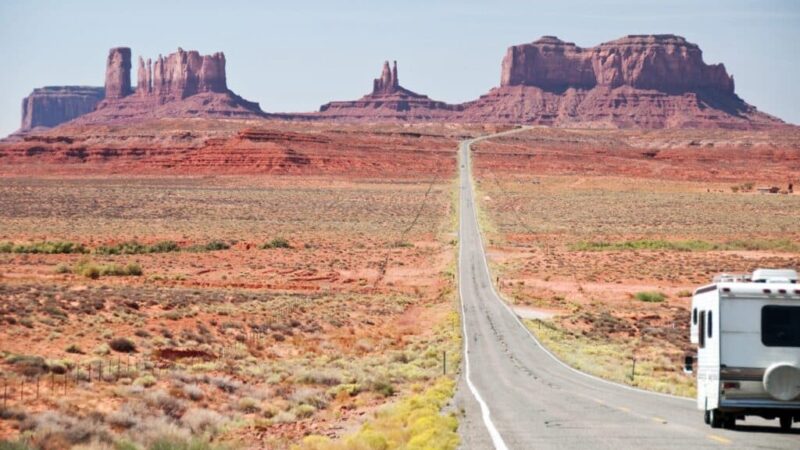Setting Up Camp After Dark? Here’s What You Should Know
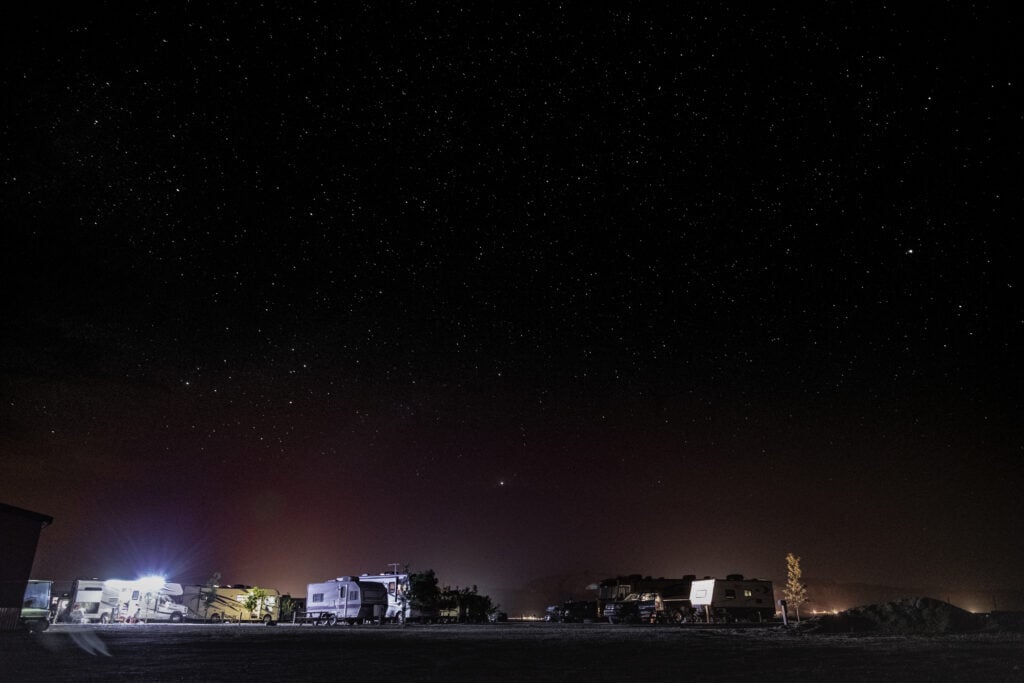
10 Tips For Setting Up Camp In The Dark
We all like to believe that our RV trips will go off without a hitch and we’ll always arrive exactly on time. But of course, it’s a rare day when everything goes according to plan! Sometimes we arrive at our RV campsite several hours later than we meant to. Although it’s never ideal, this means that you need to set up camp in the dark.
Obviously, you should do everything you can to arrive at your chosen campground/RV resort before nightfall. But a detour, a vehicle breakdown, or unexpected traffic can throw off your timing. Even the most well-prepared travelers may run into a situation like this. Most RVers have had to set up camp in the dark at some point in their lives.
Although it’s not ideal, you can take care of business no matter how late it is. The key is being able to cover the necessities, while leaving the rest for the following morning. There’s no reason to take care of every little detail when you’re already tired and grouchy. So if you need advice on setting up an RV campsite in the dark, we’ve got a complete guide for you!
1. Double check that you’re in the right site
Before you do anything else, you need to make sure that you’re parking in the right spot! A lot of campgrounds and RV parks are poorly lit at night, so it’s easy to wind up in the wrong site by mistake. Have someone get out and check for campground markers, numbers on the pavement, or other indicators.
If possible, try to get a physical copy of the campground map as well. Digital versions may work just fine, but you never know when you might lose your internet connection. If you can consult the paper map, you should be able to find your correct spot more easily.
It’s important to park in the right RV campsite because you don’t want to get halfway through the setup process and then have to start all over again.
2. Assign tasks before you arrive
If you’re camping solo, this next point doesn’t apply to you. But those with partners or other travel companions may want to split up the workload to make things easier. After all, many hands make light work! Delegating tasks is an important part of this process.
If you arrive at the campground after dark, there’s a good chance that your travel day didn’t go according to plan. Everyone in your group may be tired and frustrated. This is a bad time to try to assign chores, so it’s better if you have a standing agreement about who does what. If everyone understands their jobs, you won’t have to argue about it when you arrive.
3. Stick to the essentials
Next up, don’t try to set up every part of your RV campsite. There’s no need to pull out your exterior grill, set up camp chairs, or extend your awning. Just stick to the bare minimum so you can go to bed and start fresh in the morning.
Everyone has their own definition of what the “essentials” are, but it might include things like connecting your hookups, signing into the campground Wi-Fi, and leveling the RV. Again, none of this has to be perfect. You just need a decent setup for a few hours while you get some rest.
4. Travel with flashlights, lanterns, and headlamps within easy reach
Setting up an RV campsite in the dark can be difficult and dangerous. There are plenty of tripping hazards, and you might drop things on the ground. Therefore, it’s important to have a reliable light source to help you navigate the process.
Flashlights, lanterns, and headlamps can be a lifesaver in this case! They each have their own pros and cons, so just use whatever works best for you. Make sure you keep them in an easily accessible place when you travel because you don’t want to have to dig through your storage bins when it’s time to set up camp.
5. Only turn on your exterior lights when necessary
Speaking of lights, you may wonder if you can just turn on your exterior lights to help with the setup process. It all depends on how late you arrive! If it’s just after sundown, you can turn them on for a while. Most people probably won’t be asleep by this point, so a bit of extra light won’t be an issue.
But if you get there once night has truly fallen, you should use your exterior lights sparingly. You could disturb your neighbors if you light up like a beacon! Sometimes you may need the extra light for delicate tasks, but you should still turn them off as quickly as you can.
6. Watch your step around the campsite
You may be tempted to rush through your setup tasks when you reach the campsite after dark. Everyone in your group is probably impatient and ready to go to bed (yourself included). But you still need to be careful while you take care of business.
Campsites can contain all kinds of hidden dangers. These pitfalls may be clearly visible in the daylight, but it’s easy to miss them at night. Uneven footing can lead to falls and damaged equipment. There may also be sanitary issues like standing water or animal poop in your campsite. Loose screws and rusty metal are particularly dangerous!
For a variety of reasons, you need to watch your step. Again, use handheld lights to scan the area around you. Wear sturdy shoes as well just in case you overlook something. You don’t need to deal with a stubbed toe on top of everything else!
7. Keep children and pets inside during setup process
If you’re traveling with children and pets, there’s a good chance that they’ll be restless and eager to get outside once you arrive. They have a lot of energy to get out before bed! But for safety reasons, it’s better to keep them inside the RV until you’re done setting everything up.
Dark campgrounds are full of hidden dangers. There could be wild animals, flowing water, uneven terrain, or loose camping equipment strewn around. Any one of these things could lead to serious injuries.
Children also tend to be less coordinated and aware of their surroundings, so just handing them a flashlight usually isn’t enough to help them stay safe. Make sure they stay inside the RV while you take care of business.
8. Reduce your noise level
This is another way to be considerate of your neighbors when you arrive late. Parking your RV and setting up the campsite definitely isn’t going to be a silent process, but try to do what you can to lower your noise level. Other people are probably trying to sleep, and you would want them to do the same for you.
Avoid yelling or clanging your equipment loudly. You may need help backing up your RV, but try using phone calls or walkie-talkies instead of yelling. A bit of noise is inevitable, but you’ll make a much better impression on your neighbors if you keep it down.
9. Consider dry camping for the night
Finally, you might want to just avoid setting up your RV campsite at night. Once it gets dark outside, even small tasks like connecting your hookups can be a pain in the neck. Sometimes it’s better to just park your RV and go straight to bed.
You may have to be careful about your water and energy usage when you do this, but it can help you get to bed much faster. Then you can worry about the rest of your campsite tasks when you wake up the next day!
10. Plan your trip with the right tools
For help mapping out your route for your next RV getaway, look no further than RV LIFE Trip Wizard. This online planning tool makes it easy to plan an RV-safe route. It can also locate interesting sites along the way, all according to your travel preferences. Get RV LIFE Trip Wizard with its accompanying RV LIFE App, and start planning your adventure today!
Related articles:
- 6 Things You Need To Know About Late Arrival At RV Parks
- Should You Leave On Your RV Exterior Lights At Night?
- Why We Need To Preserve Our Dark Night Skies
The post Setting Up Camp After Dark? Here’s What You Should Know appeared first on RV LIFE.


